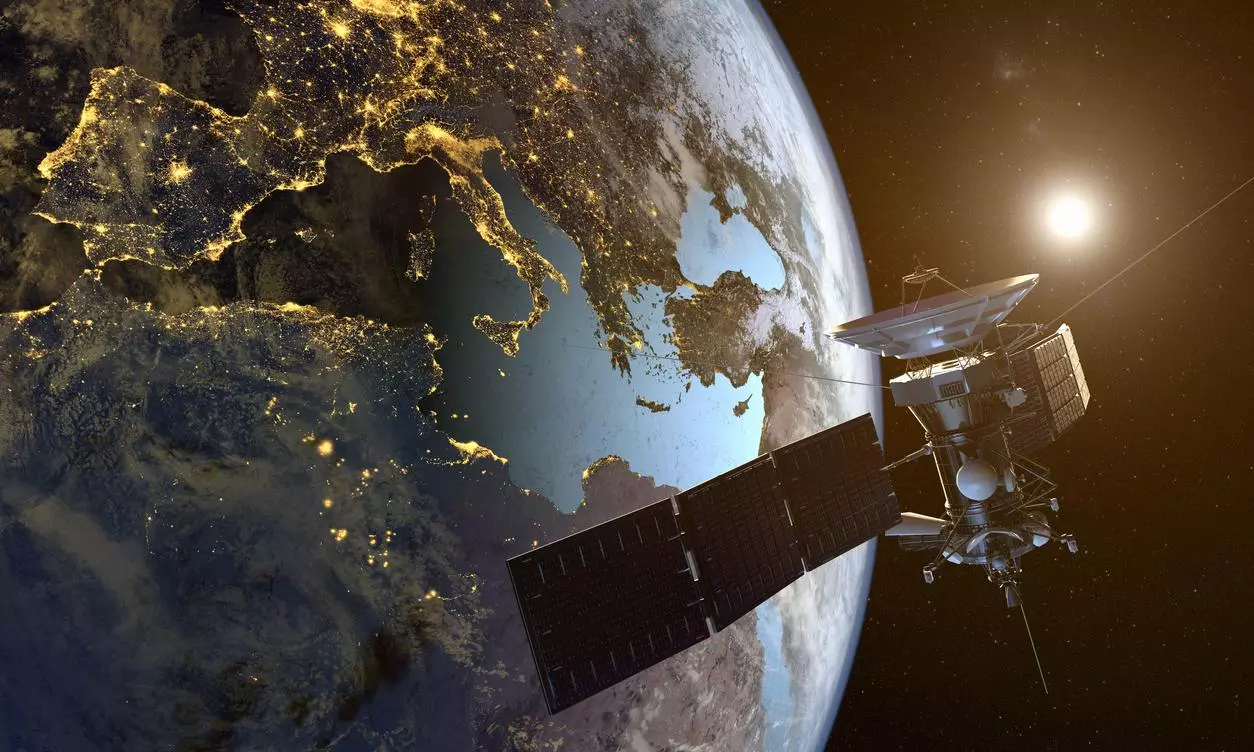
India to develop 'bodyguard satellites' after orbital near-miss: Report
An unreported incident last year with a neighbouring country's spacecraft prompts a new security initiative, including a $3 billion plan for 50 surveillance satellites

The Narendra Modi government has commissioned a project that aims to protect its satellites from attacks after a spacecraft from a neighbouring country came dangerously close to one of India’s last year, Bloomberg has reported, quoting sources.
The report said that the incident, which went unreported at the time, involved one of ISRO’s satellites orbiting about 500-600 kilometres above the earth, carrying out tasks like mapping and monitoring of objects on earth that could have military applications. A spacecraft from a neighbouring country came within one km of the Indian satellite, sources quoted by Bloomberg said.
Although there was no collision, the unusually close approach by the spacecraft to the Indian satellite could have been a deliberate move to demonstrate the capabilities of the other nation, said the sources.
The report says that neither ISRO nor the Department of Space responded to its requests to comment on the matter.
Also Read: NavIC, unsung hero of Operation Sindoor, faces critical operational challenges
$3 bn plan, 'bodyguard satellites’
The plan to develop “bodyguard satellites” is said to be part of a bigger project by the Indian government to set up more security assets in space. This includes a $3 billion plan to have about 50 surveillance satellites in orbit, with the first one expected to be launched in 2026.
India has had several conflicts with its neighbours, Pakistan and China, over the past seven decades. There is a huge difference in the space capabilities of the three countries.
According to information on N2YO, a website that keeps track of satellites in space, China has more than 930 satellites compared to India, which has more than 100 satellites in orbit.
Pakistan, in contrast, has only eight satellites.
Also Read: India needs to triple satellites in orbit in next 3 years, says ISRO chief
China’s growing influence
Officials in the United States and India have emphasised that China is becoming a "greater threat" in space. India’s Air Marshal Ashutosh Dixit, speaking at a seminar organised by the Centre for Air Power Studies in New Delhi in June, had warned that China’s satellite programme has rapidly expanded in sophistication and scale.
The Indian government is said to be working with start-ups to come up with solutions to the problem, including the launching of Light Detection and Ranging (LiDAR) satellites that could identify threats faster, thus giving sufficient time for operators on earth to reposition the targeted satellites.
An expert said the LiDAR satellites would need to be part of a larger system that would include telescopes and ground-based radar.
During Operation Sindoor, more than 400 ISRO scientists worked continuously to support the space agency’s Earth observation and communication satellites, said ISRO chairman V Narayanan recently.
A research group in India’s defence ministry in May said China supported Pakistan with satellite coverage during the recent conflict.

